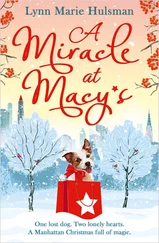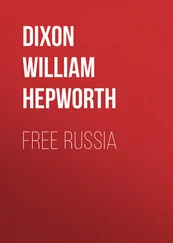Nikolai Nekrasov - Who Can Be Happy and Free in Russia?
Здесь есть возможность читать онлайн «Nikolai Nekrasov - Who Can Be Happy and Free in Russia?» весь текст электронной книги совершенно бесплатно (целиком полную версию без сокращений). В некоторых случаях можно слушать аудио, скачать через торрент в формате fb2 и присутствует краткое содержание. Год выпуска: 2005, Жанр: Поэзия, на английском языке. Описание произведения, (предисловие) а так же отзывы посетителей доступны на портале библиотеки ЛибКат.
- Название:Who Can Be Happy and Free in Russia?
- Автор:
- Жанр:
- Год:2005
- ISBN:нет данных
- Рейтинг книги:3 / 5. Голосов: 1
-
Избранное:Добавить в избранное
- Отзывы:
-
Ваша оценка:
- 60
- 1
- 2
- 3
- 4
- 5
Who Can Be Happy and Free in Russia?: краткое содержание, описание и аннотация
Предлагаем к чтению аннотацию, описание, краткое содержание или предисловие (зависит от того, что написал сам автор книги «Who Can Be Happy and Free in Russia?»). Если вы не нашли необходимую информацию о книге — напишите в комментариях, мы постараемся отыскать её.
Who Can Be Happy and Free in Russia? — читать онлайн бесплатно полную книгу (весь текст) целиком
Ниже представлен текст книги, разбитый по страницам. Система сохранения места последней прочитанной страницы, позволяет с удобством читать онлайн бесплатно книгу «Who Can Be Happy and Free in Russia?», без необходимости каждый раз заново искать на чём Вы остановились. Поставьте закладку, и сможете в любой момент перейти на страницу, на которой закончили чтение.
Интервал:
Закладка:
He fetches a loaf
From his bag, and devours it.
"They sing without voices, 170
And yet when you listen
Your hair begins rising,"
Another remarks.
It's true. Not with voices
They sing of the famine—
But something within them.
One, during the singing,
Has risen, to show them
The gait of the peasant
Exhausted by hunger, 180
And swayed by the wind.
Restrained are his movements
And slow. After singing
"The Hungry One," thirsting
They make for the bucket,
One after another
Like geese in a file.
They stagger and totter
As people half-famished,
A drink will restore them. 190
"Come, let us be joyful!"
The deacon is saying.
His youngest son, Grísha,
Approaches the peasants.
"Some vodka?" they ask him.
"No, thank you. I've had some.
But what's been the matter?
You look like drowned kittens."
"What should be the matter?"
(And making an effort 200
They bear themselves bravely.)
And Vlass, the old Elder,
Has placed his great palm
On the head of his godson.
"Is serfdom revived?
Will they drive you to barschin
Or pilfer your hayfields?"
Says Grísha in jest.
"The hay-fields? You're joking!"
"Well, what has gone wrong, then?
And why were you singing 211
'The Hungry One,' brothers?
To summon the famine?"
"Yes, what's all the pother?"
Here Klímka bursts out
Like a cannon exploding.
The others are scratching
Their necks, and reflecting:
"It's true! What's amiss?"
"Come, drink, little 'Earthworms,'
Come, drink and be merry! 221
All's well—as we'd have it,
Aye, just as we wished it.
Come, hold up your noddles!
But what about Gleb?"
A lengthy discussion
Ensues; and it's settled
That they're not to blame
For the deed of the traitor:
'Twas serfdom's the fault. 230
For just as the big snake
Gives birth to the small ones,
So serfdom gave birth
To the sins of the nobles,
To Jacob the Faithful's
And also to Gleb's.
For, see, without serfdom
Had been no Pomyéshchick
To drive his true servant
To death by the noose, 240
No terrible vengeance
Of slave upon master
By suicide fearful,
No treacherous Gleb.
'Twas Prov of all others
Who listened to Grísha
With deepest attention
And joy most apparent.
And when he had finished
He cried to the others 250
In accents of triumph,
Delightedly smiling,
"Now, brothers, mark that !"
"So now, there's an end
Of 'The Hungry One,' peasants!"
Cries Klímka, with glee.
The words about serfdom
Were quickly caught up
By the crowd, and went passing
From one to another: 260
"Yes, if there's no big snake
There cannot be small ones!"
And Klímka is swearing
Again at the carter:
"You ignorant fool!"
They're ready to grapple!
The deacon is sobbing
And kissing his Grísha:
"Just see what a headpiece
The Lord is creating! 270
No wonder he longs
For the college in Moscow!"
Old Vlass, too, is patting
His shoulder and saying,
"May God send thee silver
And gold, and a healthy
And diligent wife!"
"I wish not for silver
Or gold," replies Grísha.
"But one thing I wish: 280
I wish that my comrades,
Yes, all the poor peasants
In Russia so vast,
Could be happy and free!"
Thus, earnestly speaking,
And blushing as shyly
As any young maiden,
He walks from their midst.
The dawn is approaching.
The peasants make ready 290
To cross by the ferry.
"Eh, Vlass," says the carter,
As, stooping, he raises
The span of his harness,
"Who's this on the ground?"
The Elder approaches,
And Klímka behind him,
Our seven as well.
(They're always most anxious
To see what is passing.) 300
Some fellow is lying
Exhausted, dishevelled,
Asleep, with the beggars
Behind some big logs.
His clothing is new,
But it's hanging in ribbons.
A crimson silk scarf
On his neck he is wearing;
A watch and a waistcoat;
His blouse, too, is red. 310
Now Klímka is stooping
To look at the sleeper,
Shouts, "Beat him!" and roughly
Stamps straight on his mouth.
The fellow springs up,
Rubs his eyes, dim with sleep,
And old Vlásuchka strikes him.
He squeals like a rat
'Neath the heel of your slipper,
And makes for the forest 320
On long, lanky legs.
Four peasants pursue him,
The others cry, "Beat him!"
Until both the man
And the band of pursuers
Are lost in the forest.
"Who is he?" our seven
Are asking the Elder,
"And why do they beat him?"
"We don't know the reason, 330
But we have been told
By the people of Tískov
To punish this Shútov
Whenever we catch him,
And so we obey.
When people from Tískov
Pass by, they'll explain it.
What luck? Did you catch him?"
He asks of the others
Returned from the chase. 340
"We caught him, I warrant,
And gave him a lesson.
He's run to Demyánsky,
For there he'll be able
To cross by the ferry."
"Strange people, to beat him
Without any cause!"
"And why? If the commune
Has told us to do it
There must be some reason!" 350
Shouts Klím at the seven.
"D'you think that the people
Of Tískov are fools?
It isn't long since, mind,
That many were flogged there,
One man in each ten.
Ah, Shútov, you rendered
A dastardly service,
Your duties are evil,
You damnable wretch! 360
And who deserves beating
As richly as Shútov?
Not we alone beat him:
From Tískov, you know,
Fourteen villages lie
On the banks of the Volga;
I warrant through each
He's been driven with blows."
The seven are silent.
They're longing to get 370
At the root of the matter.
But even the Elder
Is now growing angry.
It's daylight. The women
Are bringing their husbands
Some breakfast, of rye-cakes
And—goose! (For a peasant
Had driven some geese
Through the village to market,
And three were grown weary, 380
And had to be carried.)
"See here, will you sell them?
They'll die ere you get there."
And so, for a trifle,
The geese had been bought.
Интервал:
Закладка:
Похожие книги на «Who Can Be Happy and Free in Russia?»
Представляем Вашему вниманию похожие книги на «Who Can Be Happy and Free in Russia?» списком для выбора. Мы отобрали схожую по названию и смыслу литературу в надежде предоставить читателям больше вариантов отыскать новые, интересные, ещё непрочитанные произведения.
Обсуждение, отзывы о книге «Who Can Be Happy and Free in Russia?» и просто собственные мнения читателей. Оставьте ваши комментарии, напишите, что Вы думаете о произведении, его смысле или главных героях. Укажите что конкретно понравилось, а что нет, и почему Вы так считаете.











